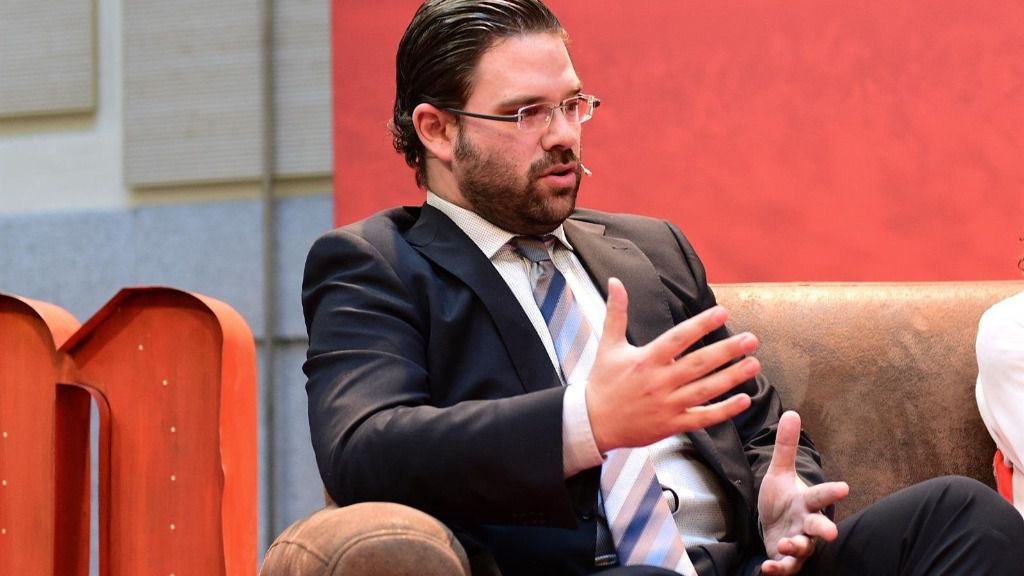
MALABIA: “IT WOULD BE RASH TO CANCEL THE FIRST IBERDROLA LEAGUE, IT PUTS THE COLLECTIVE AGREEMENT AT RISK”.
At the webinar of the Instituto Superior de Derecho y Economía (ISDE), LaLiga’s Director of Women’s Football, Pedro Malabia, stated that it would be “rash” to cancel the 2019-20 Primera Iberdrola season due to the COVID-19 health crisis because “there is a lot at stake” and stressed that the deadlines should be exhausted in order “not to put at risk” the viability of the Collective Agreement.
“We all agree that health is the absolute priority, and that the game will only be played when the health authorities decide. But the analysis and decisions are not the same for all divisions. In the Primera Iberdrola the health authorities must wait to make this decision until there is time because there is a lot at stake,” he said in the online talk as part of the ISDE Sports Convention (ISC), the international congress on sports law and industry promoted by ISDE, with the collaboration of LaLiga.
In this sense, the General Director of the Association of Women’s Football Clubs (ACFF), who analysed the main challenges facing women’s football before and after the health and economic crisis caused by the pandemic, estimated that the economic impact would reach 600,000 euros due to the audiovisual rights contract, in addition to the loss of sponsorship and commercial rights for the clubs.
“The women’s first division is no longer a competition of girls playing football. It is highly developed and has a strong professional character. The other divisions find it impossible to resume the competition. But in the First Division it would be hasty to make a decision, we have to hurry as much as possible. Nobody can control how the pandemic will evolve. It could start at the end of May or June. It’s worth waiting,” he insisted.
He considered it “important” to secure the collaboration and opinion of the clubs in the negotiation of television rights, and highlighted the work of the teams to “take care of the product” from the location of the photographers, the camera shots and advertising, as well as describing it as a “mistake” to compare women’s football with men’s. “Each sport has its own speed and speed of play,” he said. “Each sport has its own speed of development. I think the conditions for female footballers have changed radically and three quarters of Primera train in the morning in conditions very similar to those of the boys,” he said.
“TO APPLY FURLOUGH IS TO ENSURE VIABILITY”.
Pedro Malabia described it as “fundamental” that what has been agreed is respected in the Compensation Lists included in the first Collective Bargaining Agreement for women’s football. “Clubs should receive compensation when an under-23 player is in the last year of her contract. If she does not leave, the player can exercise her right to an automatic renewal with a 7 percent increase in her salary. And, if any club pays that compensation to the training club, they will take 15 percent of that amount,” she explained.
The future of women’s football after the COVID-19 crisis is, for Malabia, “to continue with the line of growth and develop a quality product” because fans can look for other forms of entertainment.
“We are in a talk by ISDE, an academic institution, and I think it is essential to work on the training of managers to prepare for the professionalised competition that is women’s football. We have to look for economic viability, continue to grow in labour relations and in the Collective Bargaining Agreement. And, to do this, we need to continue to generate a professional environment,” she said.
This online chat, moderated by Irene Aguiar, Deputy Director of IUSPORT and Legal Advisor specialising in sports law, was organised by ISDE, in collaboration with LaLiga, the Madrid Bar Association and the Madrid Chamber of Commerce.
In the previous ISDE Webinar, the Brazilian lawyer Daniel Cravo, expert in sports law at ISDE and member of the Executive Committee of the International Association of Football Lawyers (AIAF), warned that neither clubs nor FIFA can “unilaterally” extend players’ contracts beyond 30th June if the season resumes this summer due to the coronavirus crisis.








